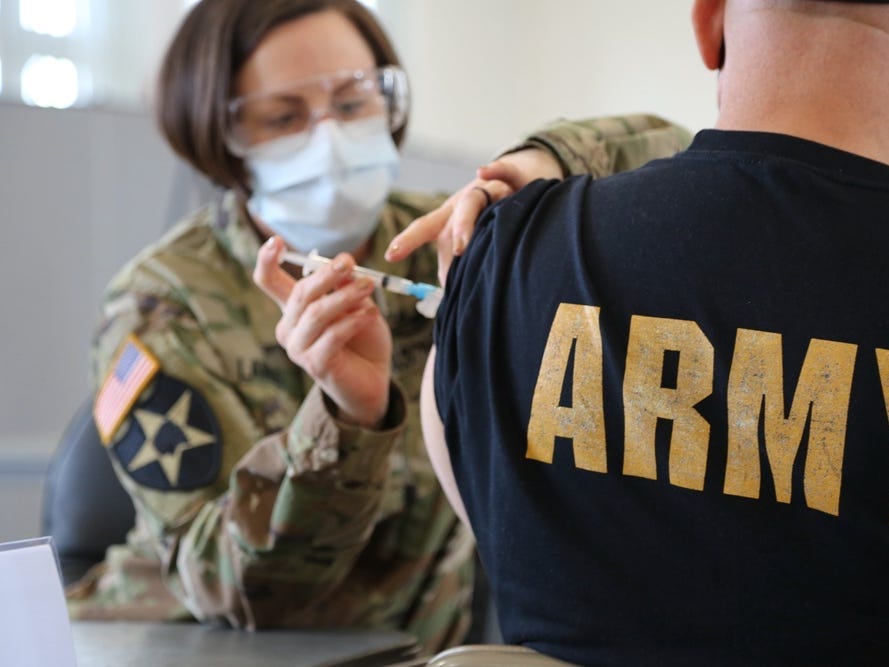
US Army photo
- A virologist and immunologist say our immune systems can adapt to COVID-19 and fight emerging variants.
- They describe how antibodies evolve over time to recognize more variants and bind tighter to the virus.
- Boosters, or three-dose vaccines, could amplify these more potent antibodies, one professor said.
- See more stories on Insider's business page.
The coronavirus that causes COVID-19 is mutating and changing – but so are our antibodies.
Professor Paul Bieniasz, virologist at the Rockefeller University, told Insider that antibodies produced by the body after an infection or a vaccine can adapt over time, recognizing variants and binding tighter to a virus.
This could be manipulated by COVID-19 booster shots to help our bodies fight variants or emerging coronaviruses, he said.
"Neither infection nor vaccination in the current two shot form comes anywhere close to maximizing the capacity of the immune system to deal with variants," Bieniasz said. "There is a great deal of additional capacity there, which we can exploit using booster doses or by modifying the mRNA vaccine regimens to make them three doses, like many other viral vaccines."
Bieniasz said that over several months, antibodies can evolve to recognize variants that would otherwise be resistant. Antibodies present several months after an infection or vaccination also bind tighter to the virus that causes COVID-19 than at one month afterwards, he said, citing studies published in journals Immunity and Nature in the past two months.
Over time, the total amount of antibodies wanes - but the quality gets better because they adapt, he said.
Professor John Wherry, director at the Institute for Immunology at University of Pennsylvania, explained that there are two types of antibodies. First, "emergency" antibodies that are produced quickly, and second, those that evolve over a longer period of time in lymph nodes.
"What we see in the blood is a mixture of antibodies made quickly as part of the body's early emergency plan and 'better ones' that trickle out from lymph nodes," he told Insider.
Bienasz said that if a vaccine dose was given "some months after" initial vaccination or an infection, it could amplify these more potent antibodies, allowing them to "diversify even more."
Simply relying on existing clinical trial results to decide policy wouldn't work, he said. We must take into account how our immune system adapts, and prepare it for the future, he said.
"It is an evolutionary arms race, our immune systems against the virus," he said. "We should be trying to think one step ahead of the virus, not one step behind."
The Centers for Disease Control and Prevention recommended on Thursday that fully vaccinated Americans over 65, health workers, or those with underlying health conditions should get an extra COVID-19 booster shot six months after they're fully vaccinated.
Wherry said that we can't yet measure the antibody response in the blood, and we don't yet know the level of antibodies needed to offer protection. Six months was "about right," he said, adding that he would "worry" if the gap between initial vaccines and boosters was shorter.
"You can think of the immune response a bit like exercise, the immune system needs to recover in between doses" he said. "If you exercise and rest in between you have improved performance over exercising very hard every day."
